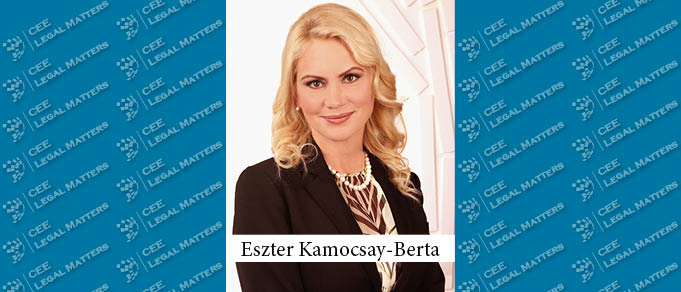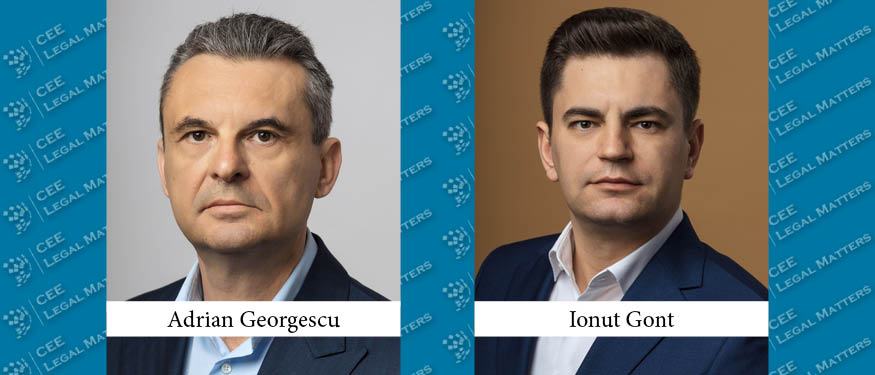Presently, a legislative proposal has been placed on the agenda, focusing on measures aimed at streamlining governmental operations. This comprehensive proposal encompasses various modifications, one of which pertains to an amendment to the personal income tax act (“PIT Act”).
Free Trade Agreement Between the Republic of Serbia and the People’s Republic of China
The Republic of Serbia and the People’s Republic of China officially signed a Free Trade Agreement (FTA) on 17 October 2023.
Remote Work in North Macedonia
The concept of a digital workplace, characterized as an employment environment allowing employees to complete tasks, collaborate, and function as part of a team, irrespective of location, has been around for some time but has gained significant traction in the aftermath of the COVID-19 pandemic. This surge in popularity can be substantially attributed to the measures enacted by the Macedonian Government to mitigate the impact of COVID-19.
Ukraine: Aligning Consumer Protection Law with EU Standards
The forthcoming Consumers' Rights Protection Law ("Law") in Ukraine, scheduled to take effect on 7 July 2024 (contingent on the cancellation of martial law in Ukraine), is poised to harmonize Ukrainian consumer protection legislation with key EU norms. This new Law aims to modernize consumer protection requirements, especially in the e-commerce context.
What’s the Cost of Unlawfulness – Part 2
In one of our previous texts (available here) we discussed misdemeanors, hence in order to analyze in more detail legislator’s penalty policy pertaining to legal entities we will here elaborate the economic offences which, along with criminal acts and misdemeanors, also fall into the penalty corpus of our legal system.
Are the Laws on Learning About Occupational Health and Safety Rules Changing for the Better?
A package called “Provisions on further simplification of the functioning of the state” has been discussed at the Hungarian Parliament in the autumn of 2023.
Poland: New State Aid Instrument
The Polish government has presented detailed conditions and modalities for providing support to investment projects of strategic importance for the transition to a net-zero-emission economy. The new State aid instrument implements the EU programme “Temporary Crisis Framework for State Aid measures to support the economy following the aggression against Ukraine by Russia”. The new financial support is to be regarded as a further incentive effect to attract new investments to Poland.
A Guide to Find Out If You Need a Well Permit
The National Water Resources Protection Map, required for the licensing of domestic and agricultural wells under the amendment to the Water Management Act, has been completed and is available on the website of National Water Directorate (in Hungarian: “Országos Vízügyi Főigazgatóság”). This Protection Map will play a central role in the future licensing of domestic groundwater wells.
Tender Opportunities in North Macedonia
Tender Opportunities in North Macedonia
What’s the Cost of Unlawfulness – Part 1
According to the definition contained in the Law on Misdemeanors (Official Gazette of RS no. 65/2013, 13/2016, 98/2016 – decision of CC, 91/2019, 91/2019 – other law and 112/2022 – decision of CC) (“the Law“), misdemeanor is an unlawful act established as misdemeanor by law or other regulation of a competent authority and which is subject to misdemeanor sanctions.
Ukraine: Improving Guidance on Identifying Ultimate Beneficial Owners
On 19 September 2023, the Cabinet of Ministers of Ukraine and the National Bank of Ukraine adopted Regulation No. 1011, introducing a comprehensive methodology ("Methodology") to identify the ultimate beneficial owners (UBOs) of legal entities in Ukraine. This significant development aims to enhance transparency and provide detailed guidance on the process of identifying UBOs, with the ultimate goal of ensuring that legal entities in Ukraine are able to correctly identify UBOs within their ownership structure and disclose this information to the competent authorities.
Romania: Important Fiscal Measures Published for Reducing the Budget Deficit
On 26 September, the Romanian Government approved by way of Law No. 296/2023 (the “Law”) important fiscal measures intended to reduce the budget deficit and ensure long-term financial stability. After multiple debates, the Law was published in Official Gazette No. 977 of 27 October 2023.
ECJ Gives its Judgment in the Xella Case: Key Takeaways
In July 2023 the European Court of Justice (ECJ) gave its judgment in case no. C-106-22 (Xella Judgment). The case was referred by the Fővárosi Törvényszék (Budapest High Court, Hungary) for preliminary ruling on the interpretation of Article 65(1)(b) TFEU in conjunction with recitals 4 and 6 of Regulation (EU) 2019/452 (EU FDI Regulation) and Article 4(2) TEU.
“Golden Parachutes”
A golden parachute is a compensation agreement guaranteeing significant financial benefits to a top executive who loses their job, namely chief executive officers and other high-ranking employees who depart because of a merger or acquisition. They are often applied through clauses in employee contracts, specific contracts, or acts of incorporation.
Can Companies Be Sued for Using a Name Similar to Another Company in Hungary?
The company name is an important asset of the company and also helps the customers when choosing between products or services. Therefore, a new company can only be founded with a name that is sufficiently different from existing companies. What are the legal options for a company if, despite the above, a new company with a very similar name has been registered?
Key Amendment to the Code of Commercial Companies in Cross-Border Company Reorganisations
The new provisions of the Code of Commercial Companies, which came into force on 15 September 2023, include a number of changes regarding cross-border and domestic mergers, divisions and conversions of commercial law companies. This is yet another major amendment to the Act, introduced less than a year after a significant amendment specifically concerning the formation and operation of capital groups, as well as changes to the rules of operation of company bodies, came into force.
The Entry into Force of the New Land Registry Act Is Postponed Again to October 1, 2024
On 1 October 2023, the amendments of the new Land Registry Act entered into force and as a result, the Act will enter into force only on 1 October 2024, instead of the date of 1 February 2024 already postponed from the initial date of 1 February 2023.
Ukraine: Advertising Law Reform
Effective from 2 October 2023, Ukraine has ushered in a series of substantial amendments to its Advertising Law, aimed at modernizing advertising regulations and harmonizing them with the EU Audiovisual Media Services Directive.































